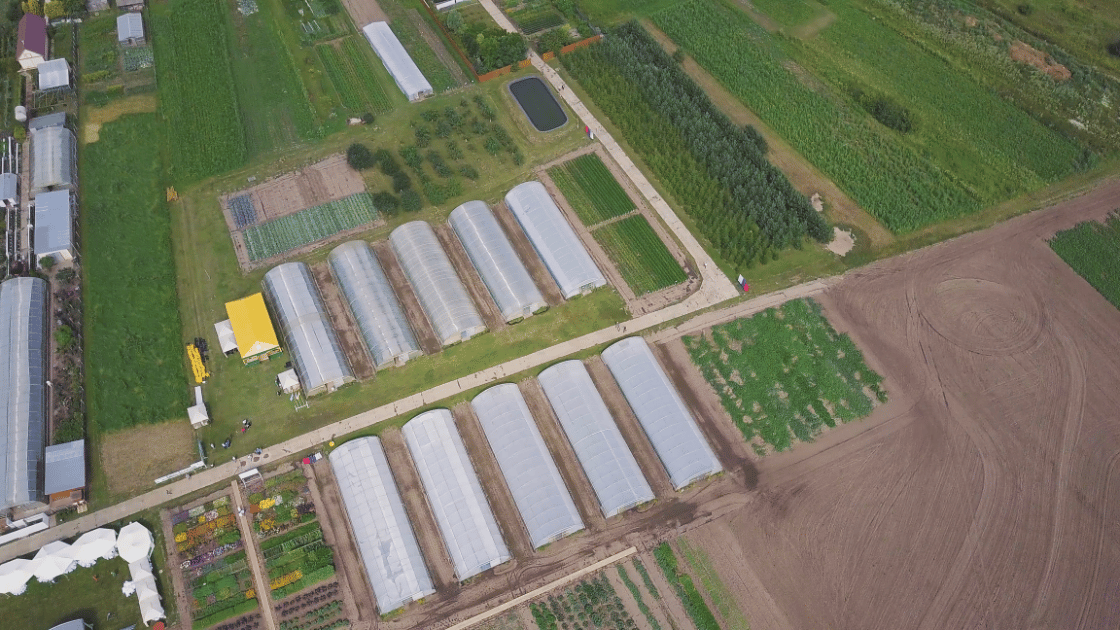Free Workshop | Farm Marketing Meets AI: Learn ChatGPT Workflows for Busy Farmers
.webp)
+1 (855) 699 1026

Over the years, we’ve worked with many farms, each with its own unique challenges and opportunities. One trend we’ve seen continue to grow is farms aggregating and reselling products from other local producers. Today, about 25% of Local Line users are selling products from at least one other farm or vendor.
It’s a smart strategy. No single farm can grow everything, but by working together, farms can expand their offerings, increase sales, and give customers the convenience of buying more in one place.
This approach is known as the farm hub model. In this post, we’ll look at what a farm hub is, why it’s becoming so valuable, how it differs from a food hub, and how Local Line’s tools can help you get started.
A farm hub is a farm that not only sells its own products but also aggregates and resells goods from other local farms and producers. Think of it as a farmer-led marketplace: instead of customers having to shop at five different farms, the hub enables them to buy everything in one place.
For example, a vegetable grower may expand into offering eggs, cheese, and meat by partnering with nearby farms or purchasing additional produce from another farm to supplement their own offerings. The farm hub handles the sales, marketing, and distribution, while supporting a diverse community of producers.
While the terms are sometimes used interchangeably, farm hubs and food hubs have important distinctions:
In short, farm hubs are farmer-led retail operations, while food hubs are distribution businesses. Both strengthen local food systems, but they serve different purposes and operate on different scales.
There are several reasons this model is gaining traction:
Many farms are already proving the power of this model. Here are two examples using this model at different scales.
.png)
Charmed Life Farm, run by Erica Zorrilla on just four acres in South Florida, is proof that even small farms can thrive as hubs. Alongside her pasture-raised chickens, ducks, eggs, organic feed, and pork, Erica began reselling raw milk from a neighboring dairy.
The demand from her customers was high, but the logistics were overwhelming until she adopted Local Line. By consolidating orders, communication, and inventory into a single platform, Erica reduced what used to take three full days of milk ordering and distribution to a streamlined weekly process. Today, her customers enjoy a one-stop shop for eggs, meat, feed, and milk – all while Erica saves hours each week and supports another local farm.
Deck Family Farm runs a year-round CSA with over 300 active members. However, what sets their program apart is the diversity of products: they aggregate produce from 20 other farms to offer a range of vegetables, dairy, and specialty goods, in addition to their own meat and eggs.
Their story demonstrates the power of the farm hub model at scale: they save over 20 hours weekly in administrative work while continuously serving customers with an unmatched variety of local food.
Both farms demonstrate that hubs can work at different scales: whether it’s reselling one product line or managing dozens of vendor partnerships, the model creates growth and resilience.
Local Line is designed with the farm hub model in mind. Empowering you with the full capabilities of a food hub software, while allowing you to scale at your desired pace as needed. And it’s not just theory, approximately 25% of Local Line users are selling products from at least one other farm or vendor.
Our platform gives farmers all the tools needed to aggregate, resell, and manage relationships with other producers, without the headaches.
Here are the features that make it possible:
The farm hub model is about collaboration, community, and growth. By aggregating products, farms not only strengthen their own businesses but also create resilient local food systems that benefit everyone.
With Local Line, the tools to run a successful farm hub are already built in. From supplier management to customer convenience, you can manage it all under one platform, while keeping your focus where it matters most: growing food and growing your farm.
Ready to get started? Chat with our team or sign up for your account!
A farm hub is a farm that sells its own products while also aggregating and reselling goods from neighboring farms. This model allows customers to buy a variety of local food in one place, while helping farms increase revenue and support their local food networks.
A farm hub is farmer-led, typically operated by a single farm that expands its catalog with products from other farms, usually for direct-to-consumer sales. A food hub, on the other hand, is a larger, standalone aggregator or distributor that supplies institutions, restaurants, or wholesale buyers.
Farms are choosing the hub model because it increases customer convenience, boosts average order size, supports collaboration with neighboring farms, and creates stronger, more resilient local food systems.
Yes. Even small farms can successfully act as hubs. For example, Charmed Life Farm in Florida resells raw milk from a neighboring dairy alongside its own products, while Deck Family Farm in Oregon aggregates goods from 20 farms to serve 300+ CSA members year-round.
Local Line provides features like vendor connections, inventory management, bulk actions, and customer communication tools. Approximately 25% of Local Line users already resell products from other farms through their online stores, proving the model works at scale.
Customers enjoy one-stop access to diverse local products, flexible online ordering, and fewer trips, making local food more convenient and accessible.
Farms can start by partnering with trusted neighboring producers, using Local Line's Discover to find other producers near you, and using tools like vendor and inventory management to streamline operations and scale their offerings.


